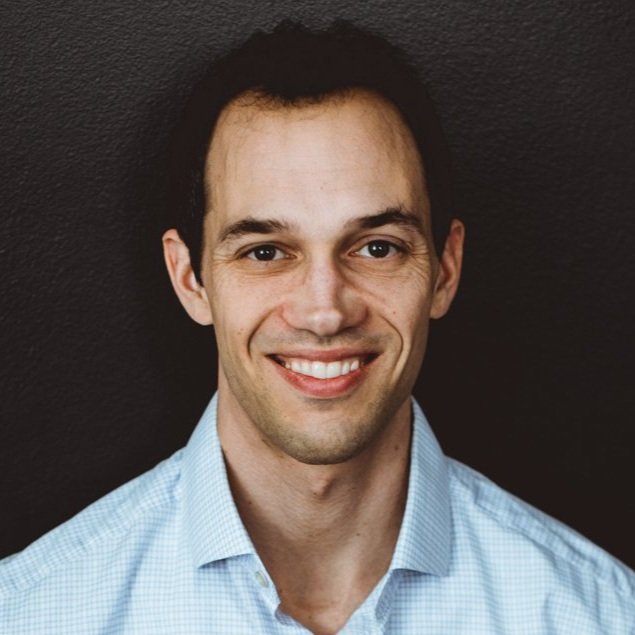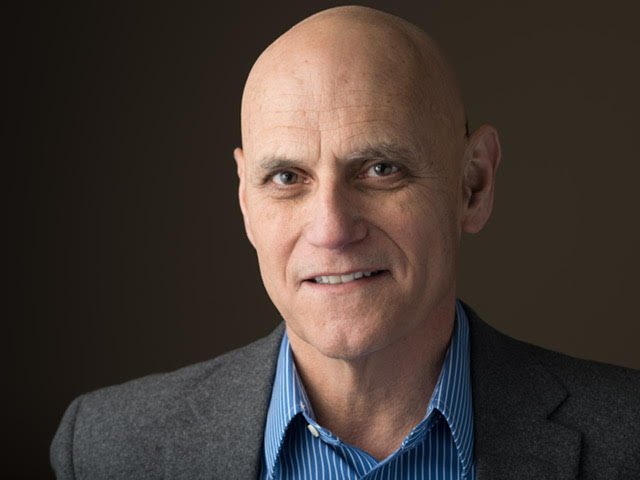Upcoming and Past Events

NYC-CBT Spring Networking Event
Please join your friends and colleagues from the NYC Cognitive Behavioral Therapy Association! All are welcome, from students to early career professions to seasoned NYC-CBT veterans. Enjoy the Outdoor Garden Balcony & Indoor Bar.

Incorporating Dialectical Behavior Therapy Skills into Clinical Practice
3.5 CE credit hours available
Lecture Description
Dialectical Behavior Therapy (DBT) is a comprehensive psychological treatment that was originally developed for borderline personality disorder but has now been used to treat a variety of mental health problems. Dozens of randomized trials of DBT have been conducted including studies evaluating the efficacy of only the skills portion of the treatment. Results support the use of DBT skills to increase emotion regulation capabilities and decrease negative mental health outcomes such as depression and anxiety. In this workshop, Dr. Rizvi will review the DBT skills modules, the proposed mechanisms of change within DBT, and will highlight specific skills that may be especially useful in a transdiagnostic clinical practice. In addition, skills that therapists can use themselves to manage stress and burnout will be reviewed.
Learning Objectives:
At the end of this workshop, the learner will be able to:
1. Identify the four skills modules of Dialectical Behavior Therapy.
2. Explain the relationship between DBT skills use and psychological outcomes.
3. Describe the use of DBT distress tolerance skills for managing stress.
Speaker Biography
Shireen Rizvi is a licensed clinical psychologist, author, and researcher with over 20 years of professional experience. She currently serves as Director of Psychology Training and Director of DBT Services and Research at Montefiore Einstein in New York City. From 2009-2024, Shireen was Professor of Clinical Psychology at Rutgers University. She has authored over 100 peer-reviewed journal articles and book chapters, as well as two books on Dialectical Behavior Therapy. She also has a forthcoming book on DBT skills for everyday life. Lastly - she is a founding member of NYC-CBT!

Contemporary, Advanced CBT-I; Colleen E. Carney Ph.D.
Lecture Description
Over the years, there have been a number of developments in CBT for insomnia regarding: the role of comorbidity in the sleep disturbance, the types of beliefs that interfere with treatment and long term outcomes, the type of techniques for cognitive change, clarifying whether differing approaches are needed for comorbid insomnias, questioning the evidence base for sleep hygiene as a strategy and whether monotherapies are more efficient than delivering the same package to everyone. Despite these developments, there is evidence that outdated beliefs and approaches have continued in the self-help and community treatment settings. Spend a few hours updating your knowledge and skills in treating insomnia disorder with an engaging and entertaining approach to advanced CBT-I. Attendees will learn how to use case formulation to understand complicated insomnia cases and learn which evidence-based strategies are most effective for addressing specific maintaining factors in insomnia.
Speaker Biography
Dr. Colleen E. Carney is a Professor at Toronto Metropolitan University and the Director of the Sleep and Depression Laboratory. Dr. Carney is a leading expert on comorbid insomnia treatment, with over 25 years of experience in sleep medicine experience, and over 200 publications. They are a passionate advocate for improving access to evidence based treatments for insomnia.
4 CE credit hours available
Recovery-Oriented Cognitive Therapy for Inpatients and Outpatients - Judith S. Beck, Ph.D.
Free for all registrants: Register Here
Lecture Description
Recovery-Oriented Cognitive Therapy (CT-R) was developed by Aaron Beck and Paul Grant (now Director of the CT-R program at Beck Institute) and colleagues (A. Beck et al, 2020) to treat individuals diagnosed with serious mental health conditions, such as schizophrenia and bipolar disorder. The principles of CT-R can also be adapted to make CBT more effective for individuals with acute or chronic or complex conditions (J. Beck, 2021). This presentation will describe both sets of clients, from those who have been hospitalized for decades to those whose conditions, such as depression and anxiety, are much less severe. CT-R requires both a strength-based and a traditional problem-based cognitive conceptualization. Therapists de-emphasize clients’ psychopathology. They encourage clients to engage in highly meaningful experiences, in line with their aspirations and values, and help them draw conclusions that foster a sense of purpose, hope, control, well-being, connection, and empowerment and that increase the strength of their positive beliefs. To build resilience, therapists help clients recognize how they overcome obstacles.
Objectives: Participants will learn to
1. Identify clients’ current and lifetime strengths, positive qualities, and resources
2. Strengthen adaptive beliefs through drawing conclusions about positive experience.
3. Identify and strengthen values and aspirations
Speaker Biography
Judith S. Beck, PhD, is President of the Beck Institute for Cognitive Behavior Therapy (beckinstitute.org), a nonprofit organization that provides state-of-the-art virtual training in Cognitive Behavior Therapy (CBT) and Recovery-Oriented Cognitive Therapy (CT-R). The Beck Institute also offers certification in CBT, and online courses on a variety of topics, in addition to conducting research and providing CBT resources around the world. Dr. Beck is also Clinical Professor of Psychology in Psychiatry at the University of Pennsylvania. She has written over 100 articles and chapters, workbooks, pamphlets for professionals and nonprofessionals, and 7 books, including Cognitive Behavior Therapy: Basics and Beyond, 3r dEdition (2021) and Cognitive Therapy for Challenging Problems: What to Do When the Basics Don’t Work. She has made hundreds of presentations nationally and internationally on various applications of CBT and is the primary developer of the Beck Institute’s on demand CBT training courses, which have been taken by more than 28,000 health and mental health professionals in over 130 countries. Dr. Beck also provides supervision and treats clients.

Understanding and Treating Obsessive Compulsive Personality Disorder - Anthony Pinto, Ph.D.
Lecture Description
Obsessive compulsive personality disorder (OCPD) is a chronic maladaptive pattern of excessive perfectionism, preoccupation with orderliness/detail, and need for control over one’s environment. Despite its prevalence, many clinicians are not aware of how to treat OCPD. Dr. Pinto will review the core features of OCPD, the different ways that it can present, how the condition impacts functioning, how it can be differentiated from OCD, and how it can complicate the treatment of other conditions. Then he will focus on cognitive behavioral therapy interventions for the maladaptive traits and behaviors of OCPD. Finally, Dr Pinto will discuss the challenges of working with these patients and offer ways of overcoming treatment obstacles.
Speaker Biography
Anthony Pinto, Ph.D. is Director of the Northwell Health OCD Center at Zucker Hillside Hospital on Long Island, and Associate Professor of Psychiatry at the Donald and Barbara Zucker School of Medicine at Hofstra/Northwell. Dr. Pinto has an extensive publication record, with over 100 manuscripts/chapters on OCD/related conditions. He is a leading authority on obsessive compulsive personality disorder and co-edited a comprehensive book on the subject. He is the lead author of the self-rated Family Accommodation Scale for OCD, which is being used worldwide. He serves on the International OCD Foundation’s Scientific and Clinical Advisory Board and is on the teaching faculty for the IOCDF’s Behavior Therapy Training Institute.

NYC-CBT Spring Networking Event
Please join your friends and colleagues from the NYC Cognitive Behavioral Therapy Association! All are welcome, from students to early career professions to seasoned NYC-CBT veterans. Enjoy the Outdoor Garden Balcony & Indoor Bar.

Foundations of Cognitive Behavioral Therapy: Mindfulness Interventions
Presenter: Anna R Edwards, Ph.D.
The NYC-CBT Board is proud to offer this four-part series teaching the fundamentals of CBT, taught by our very board members. This is a wonderful opportunity for clinicians wanting to gain a better understanding of CBT or brush up on skills and techniques they might not regularly use.
This session will cover mindfulness interventions

Foundations of Cognitive Behavioral Therapy: Behavioral Interventions
Presenter: Ruth Lippin, LCSW
The NYC-CBT Board is proud to offer this four-part series teaching the fundamentals of CBT, taught by our very board members. This is a wonderful opportunity for clinicians wanting to gain a better understanding of CBT or brush up on skills and techniques they might not regularly use.
This session will cover behavioral interventions

Foundations of Cognitive Behavioral Therapy: Cognitive Interventions
Presenter: Jamie Schumpf, PsyD
The NYC-CBT Board is proud to offer this four-part series teaching the fundamentals of CBT, taught by our very board members. This is a wonderful opportunity for clinicians wanting to gain a better understanding of CBT or brush up on skills and techniques they might not regularly use.
This session will cover cognitive interventions

Life After Grad School: Navigating Building Careers in Clinical Psychology and Social Work
Please join us for a conversation about navigating life during and after graduate school
Topics will include:
Experiences to acquire during training
Licensure, including how social workers can earn their clinical license
Career paths in academic medical settings
Starting, building and maintaining a private practice
Treating various patient populations
Forensic evaluations and court testimony
Supervision and consultation
Professional community
Self-care and burnout
Your questions

Foundations of Cognitive Behavioral Therapy: CBT Model and Approach
The NYC-CBT Board is proud to offer this four-part series teaching the fundamentals of CBT, taught by our very board members. This is a wonderful opportunity for clinicians wanting to gain a better understanding of CBT or brush up on skills and techniques they might not regularly use.
This session will cover CBT Model and Approach
Presenter: Jason Duncan, Ph.D.

Back from the Brink: Helping Suicidal Patients Choose to Live
with Cory Newman, Ph.D.
Patient safety is the utmost priority across populations, and this clinically-oriented workshop will offer practical tools for conceptualizing and intervening with individuals who have expressed suicidal thoughts. Special emphasis will be placed on cognitive-behavioral interventions such as increasing attachments to people and activities, and modifying “suicidogenic beliefs.” These procedures will be linked to research on the cognitive characteristics of suicidal patients, including hopelessness, morbid perfectionism, dichotomous thinking, and poor autobiographical recall.

Maintaining Professional Boundaries in Psychotherapy
with Bruce Hillowe, J.D., PhD
The New York State Board of Regents recently mandated that effective April 1, 2023, psychologists, social workers and mental health practitioners (LMHC’s, LMFT’s, LPsa’s and LCAT’s) take as part of their required continuing education a three credit course on the maintenance of professional boundaries with patients. The reason for the new requirement is concern about the number of professional disciplinary proceedings by the State’s licensing boards against mental health professionals where boundaries have allegedly been violated. This course has been designed to meet the State’s mandatory CE requirement for both boundaries and ethics: courses on boundaries that cover New York laws, rules and regulations related to unprofessional conduct may also be counted toward the ethics requirement.
Topics to be discussed will include the ethical, professional, legal and clinical backgrounds for boundaries; discriminating between boundary crossings and violations; the establishment and maintenance of boundaries at the outset of and during psychotherapy including issues of multiple relationships, at- risk patients and social media; the challenge of vulnerable patients and therapists; and maintaining clinical creativity and flexibility within the therapeutic frame. The potential harm and legal consequences of boundary violations will also be reviewed.
The presenter is Bruce V. Hillowe JD PhD, a psychologist-psychoanalyst and mental health care attorney who has defended hundreds of mental health practitioners in professional disciplinary proceedings in New York State, many of them for alleged boundary violations.

Cognitive-Behavioral Couple Therapy: A Principle-based Approach for Clinical Application
with Donald Baucom, Ph.D.
This clinically-oriented workshop will present the fundamentals of conducting cognitive-behavioral couple therapy (CBCT) for distressed couples in real world settings using a principle-based approach. The workshop will begin with how to conceptualize the concerns of a given couple, including cognitive, behavioral, and emotional factors within an ecological framework incorporating individual, relationship, and environmental factors. The majority of the workshop will focus on how to employ various cognitive, behavioral, and emotional interventions to alleviate relationship distress. The workshop will include brief didactic presentations and videos of various intervention strategies to achieve these goals. Adapting interventions to marginalized couples and other complicating factors will be discussed.

Benefits and Limitations of Psychopharmacology with Joseph L. Goldberg, M.D.
This practical workshop will review current information about the indications for pharmacotherapy in major mood, psychotic and anxiety disorders, and explore the strengths and limitations of currently available psychotropic medications. Predictors of placebo responsivity, as well as clinical (e.g., symptom cluster) and biological (e.g., pharmacogenetic) predictors of drug responsivity will also be reviewed. Decision-making regarding pharmacotherapy versus psychotherapy versus their combination in major depression will be discussed, as will the role of patient preference on treatment outcome. Finally, strategies for managing ultra-treatment resistant mood disorders in the setting of pharmacological futility will be explored.

Foundations of Cognitive Behavioral Therapy: Mindfulness Interventions
The NYC-CBT Board is proud to offer this four-part series teaching the fundamentals of CBT, taught by our very board members. This is a wonderful opportunity for clinicians wanting to gain a better understanding of CBT or brush up on skills and techniques they might not regularly use. This series is completely free. You can attend as many or as few as you would like. In addition, it’s a great chance to become better acquainted with our board members and colleagues. Space is limited. If you sign up, we kindly ask that you make your best effort to attend, that way a seat is not taken from others who would like to join.
This session will cover mindfulness interventions
Presenter: Anna R Edwards, Ph.D.

Cognitive Behavioral Therapy for Regret with Robert Leahy, Ph.D.
In this presentation we will examine how regret is linked to hindsight bias, maximization rather than satisfaction strategies, intolerance of uncertainty, rejection of ambivalence, refusal to accept trade-offs, excessive information demands, and ruminative processes. Specific techniques will be elaborated to balance regret with acceptance, future utility, and flexibility to enhance more pragmatic decision processes, reverse ruminative focus on the past, and replace self-criticism with adaptive self-correction.

Foundations of Cognitive Behavioral Therapy: Behavioral Interventions
The NYC-CBT Board is proud to offer this four-part series teaching the fundamentals of CBT, taught by our very board members. This is a wonderful opportunity for clinicians wanting to gain a better understanding of CBT or brush up on skills and techniques they might not regularly use. This series is completely free. You can attend as many or as few as you would like. In addition, it’s a great chance to become better acquainted with our board members and colleagues. Space is limited. If you sign up, we kindly ask that you make your best effort to attend, that way a seat is not taken from others who would like to join.
This session will cover behavioral interventions
Presenter: Ruth Lippin, LCSW

Pain Reprocessing Therapy: A Framework for Recovering from Primary Chronic Pain with Yoni K. Ashar, PhD and Daniella Deutsch, ASW
Medical treatments for chronic pain are often ineffective, and psychological treatments typically view pain as a lifelong, chronic condition that can only be managed but not effectively treated. Here, we introduce a novel therapeutic framework, pain reprocessing therapy (PRT), integrating advances from neuroscience, psychology, and medicine to more effectively treat chronic pain. PRT rests on the premise that many cases of chronic pain are driven primarily by fear-avoidance learning and maladaptive functional changes in predictive processing and pain construction—termed “primary” or “neuroplastic” pain. Critically, this suggests that cases of primary chronic pain can be “unlearned”, with symptoms mostly or completely eliminated. In a recently completed clinical trial (N = 151), 66% of patients randomized to PRT were pain-free or nearly so at post-treatment, as compared to less than 20% of controls, with gains largely maintained for one year post-treatment (Ashar et al., 2022). This workshop will provide clinicians an introduction to the PRT framework.

Foundations of Cognitive Behavioral Therapy: Cognitive Interventions
The NYC-CBT Board is proud to offer this four-part series teaching the fundamentals of CBT, taught by our very board members. This is a wonderful opportunity for clinicians wanting to gain a better understanding of CBT or brush up on skills and techniques they might not regularly use. This series is completely free. You can attend as many or as few as you would like. In addition, it’s a great chance to become better acquainted with our board members and colleagues. Space is limited. If you sign up, we kindly ask that you make your best effort to attend, that way a seat is not taken from others who would like to join.
This session will cover cognitive interventions

Foundations of Cognitive Behavioral Therapy: CBT Model and Approach
The NYC-CBT Board is proud to offer this four-part series teaching the fundamentals of CBT, taught by our very board members. This is a wonderful opportunity for clinicians wanting to gain a better understanding of CBT or brush up on skills and techniques they might not regularly use. This series is completely free. You can attend as many or as few as you would like. In addition, it’s a great chance to become better acquainted with our board members and colleagues. Space is limited. If you sign up, we kindly ask that you make your best effort to attend, that way a seat is not taken from others who would like to join.
This session will cover CBT Model and Approach
Presenter: Jason Duncan, Ph.D.

Schema Therapy Made Simple: A Practical Approach with Eckhard Roediger, M.D.
Schema Therapy is a type of Cognitive Behavioral Therapy (CBT) which was developed specifically for the treatment of personality disorders, chronic mood problems, and interpersonal difficulties. Schema therapy is evidence-based and transdiagnostic in its approach. This workshop will introduce the Schema Therapy model, including its contemporary modifications. Dr. Roediger will also demonstrate use of the therapeutic relationship for limited reparenting. Another key feature of Schema therapy is the intensive use of experiential techniques. After outlining the need for emotion-focused approaches to induce deep and corrective emotional experiences, participants will engage in an Imagery Rescripting exercise together. Finally, there will be a role play demonstration of a chair dialogue with an externalizing (e.g. narcissistic) client. Participants will receive an intensive introduction into the Schema Therapy approach, along with vivid clinical examples, and will learn how Schema Therapy broadens and deepens our CBT therapeutic options.

NYC-CBT Fall Networking Event
Please join your friends and colleagues from the NYC Cognitive Behavioral Therapy Association for our first in-person networking event since 2019! All are welcome, from students to early career professions to seasoned NYC-CBT veterans. Enjoy the Outdoor Garden Balcony & Indoor Bar.

Desirable Difficulties: Optimizing Exposure Therapy for Anxiety Through Inhibitory Learning By Jonathan Abramowitz, PhD
Fear and anxiety are among the most common problems for which individuals seek psychological treatment. Although exposure therapy is highly effective for these conditions, many clients fail to benefit or experience relapse at some point after treatment. Cutting-edge models of exposure focus on an inhibitory learning theory of fear extinction, which points to specific techniques to optimize short- and long-term treatment gains. Collectively, inhibitory learning strategies emphasize distress tolerance, as opposed to habituation of distress; and introduce “desirable difficulties” into exposure by challenging clients to learn that their feared situations are not dangerous. This workshop aims to help clinicians apply this model to optimize exposure therapy. The inhibitory learning model will be described, and then numerous practical strategies for optimizing inhibitory learning during exposure will be introduced and illustrated in detail using case descriptions and videos.

Acceptance and Commitment Therapy as a Form of Process-Based Therapy with Steven C. Hayes, Ph.D.
Process-Based Therapy is not a new form of therapy, but a new way of thinking about what practitioners and the public should expect of evidence-based interventions. Acceptance and Commitment Therapy is a good test case for a PBT approach because its underlying model has been examined, not just in over 850 randomized trials, but in thousands of basic and applied studies of processes of change and intervention kernels that move them. In this workshop, I will show how a focus on processes of change in PBT can vitalize your clinical work when applied in an idiographic way and how ACT and its psychological flexibility model can be used to accomplish that end.

Life After Grad School: Navigating Building Careers in Clinical Psychology and Social Work
Please join us for a conversation about navigating life during and after graduate school
Topics will include:
Experiences to acquire during training
Licensure, including how social workers can earn their clinical license
Career paths in academic medical settings
Starting, building and maintaining a private practice
Treating various patient populations
Forensic evaluations and court testimony
Supervision and consultation
Professional community
Self-care and burnout
Your questions

Socratic Dialogue: How to use this Skill to change Core Beliefs and Schemas with Scott Waltman, PsyD, ABPP
The bulk of therapist training is devoted to the initiation of therapy and reduction of acute symptoms, while less attention is paid to the later phases of treatment. Although modification of core beliefs or schemas is not inherently different from working with other cognitions, it can be a longer process. Effectively targeting core beliefs and schemas can be conceptualized as a multi-intervention process that involves cognitive, behavioral, experiential, and emotion-focused strategies to bring about change. Participants will be taught interventions to bring about lasting change in core beliefs and schemas. A number of specific strategies will be taught and demonstrated.

A Transdiagnostic Treatment for Anxiety & Emotional Disorders: the Unified Protocol with David H. Barlow, Ph.D., ABPP
Recent conceptualizations of anxiety, depressive, trauma-related and other “emotional” disorders emphasize their similarities rather than their differences. In response, there has been a movement away from traditional disorder-specific interventions toward treatment approaches focused on addressing core psychological processes that cut across these disorders. These “transdiagnostic” treatments also address co-occurring emotional disorders, which is the norm rather than the exception, and have the potential to increase the availability of evidence-based treatments to meet a significant public health need. The Unified Protocol for Transdiagnostic Treatment of Emotional Disorders (Barlow et al., 2018; UP), has accumulated substantial empirical support for its use. The UP is an emotion-focused cognitive-behavioral treatment (CBT) that targets core temperamental characteristics , particularly, but not limited to, neuroticism occurring across what used to be called the “neurotic spectrum” (e.g., anxiety, depressive, dissociative, and related disorders).
This introductory workshop will first briefly discuss the rationale for a transdiagnostic approach to treatment and review evidence supporting the UP. This will be followed by a description and demonstration of how to apply core UP treatment modules, along with the similarities and differences between the UP and traditional CBT. Audio and videotaped illustrations of core treatment interventions (e.g., mindful awareness, emotion exposures) will be presented and attendees will be invited to participate in exercises as part of these demonstrations.

Half-Day Workshop: Introduction to Cognitive Processing Therapy with Patricia A. Resick, Ph.D., ABPP
The purpose of this half-day workshop is to introduce participants to cognitive processing therapy (CPT) protocols for posttraumatic stress disorder (PTSD). The workshop begins with a functional description of why some people do not recover from trauma and why comorbid symptoms develop along with their PTSD. Cognitive and biological theories will be introduced to describe why cognitive therapy reduces PTSD symptoms. Participants will learn first about the standard 12-session therapy, session by session along with a variable-length version of the protocol. CPT is a very systematic approach to treating PTSD in which participants learn to think about their traumatic events differently and learn the skill of more balanced thinking generally. This workshop includes videotaped examples of the therapy.

NYC-CBT Black Lives Matter Panel Discussion: Applying Social Justice in Daily Clinical Practice
How do we apply evidence-based treatment to the BIPOC patient and their individual context? What is the work we can each do to promote anti-racist attitudes and behaviors? We are thrilled to bring you Dr. Karinn Glover and Dr. Dinelia Rosa who will delve deeper into the medical and mental health disparities, discuss new approaches clinicians can apply, and lead us in a conversation about what we can each do to promote social justice as a mental health practitioner.


